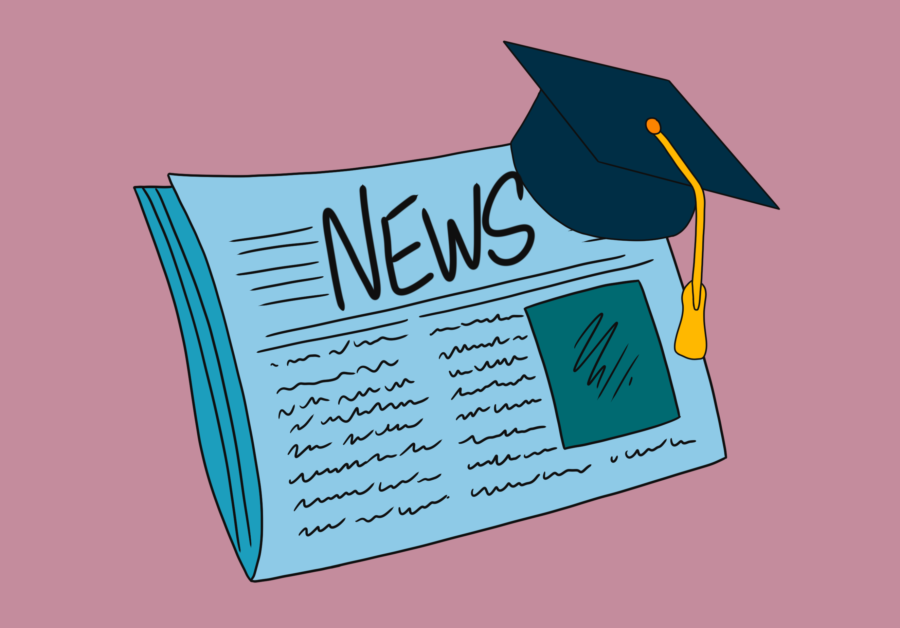Sean Guillory remembers when he realized the true nature of academic publishing.
It was a “formative moment” early in his time in graduate school, he said. “I asked my professor, who was the audience for his book? And he said, ‘Well, maybe about, like, 12 specialists.’”
Guillory was shocked. “Why the f*** do you want to write a book for 12 people?” he told me.
Today, Guillory is the digital scholarship curator at the University of Pittsburgh’s Center for Russian, East European and Eurasian Studies and host of the Eurasian Knot podcast. He is one of the scholars bringing academic knowledge to the general public.
Generally, academics are not famous for their ability to express their ideas in a way that’s comprehensible to those who aren’t specialists in their field. But a new wave of enterprising scholars is using their specialized knowledge to educate the general public.
Doug Hartmann is a sociologist at the University of Minnesota and co-editor-in-chief of The Society Pages, where he is my boss. While academic perspectives and knowledge are valuable, he said they must also be “made manageable for regular audiences who don’t share our vocabulary or intimate knowledge of the methods and the data we use.”
Nate Sloan is a musicologist at the University of Southern California and co-host of the podcast Switched on Pop.
“The benefit of academia as a sort of closed system,” Sloan said, “is that it encourages a lot of rigor.” On the other hand, there’s “a certain insularity and inability to share some of these findings.”
“Institutions privilege writing about research that is hard to read and even harder to get your hands on,” wrote Kaitlyn Ugoretz, who runs a YouTube channel called Eat Pray Anime that explores religion through Japanese pop culture. “Isn’t our purpose to teach as many people as possible as best as we can?”
“It is good as a society to increase our understanding of the world around us,” Gretchen McCulloch, a linguist who co-hosts the podcast Lingthusiasm, wrote in an email. “But this increased understanding isn’t worth as much if people don’t know about it!”
This isn’t just about boosting professors’ egos. Without high-quality information, the public will be misinformed on topics of vital civic importance. Andrew Mark Henry has a doctorate in religious studies from Boston University and runs the YouTube channel Religion for Breakfast.
Especially when Henry started the channel eight years ago, he said most of the religion-related videos on YouTube were blatant propaganda. This misinformation continues to proliferate today.
“Very little is being talked about from an academic, non-sectarian perspective,” Henry said.
Henry argued it’s vital to have good information about religion.
“In order to understand the United States as a nation, you gotta learn something about religious studies,” Henry said.
Nick Mathews is a former board member of The Society Pages and is a professor of digital journalism at the University of Missouri-Kansas City. Before all of that, he was a journalist for nearly two decades, editing newspapers like the Houston Chronicle.
He said his new professor job includes public-facing work in the job description. He said he’ll be “identifying challenges that local news organizations are facing, finding best practices that news organizations are using and sharing that knowledge.”
He also plans to write newspaper articles about his research into local news.
“Withholding knowledge from the public is just a disservice to the community,” Mathews said.
The scholars I talked to had a lot of ideas about how academia could better accommodate public-facing scholarship.
“I would like to see seed grants for YouTubers trying to get started, or content creators in general,” Henry said.
He pointed to universities and the American Academy of Religion as organizations that could potentially provide these grants. Similar grants have been provided by LingComm, a project run by McCulloch and her co-host, Lauren Gawne.
Mathews pointed out that, while he has language about public scholarship in his contract, the same can’t be said for scholars that have already been working for decades.
“Academia should count public-facing work as part of the ‘service’ component of academic jobs,” McCulloch said. Currently, “service” includes things like editing a journal.
“Most of the public-facing work done by academics is treated as additional to their workload rather than a core part of their job,” Gawne said.
But including public scholarship in academia might be more complicated than it sounds. One issue “is how to count that kind of work,” Hartmann said. “If somebody does an interview with you, is that a box you check or something you report, if you write an op-ed, or you testify in front of the legislature, that’s all very difficult to count, much less evaluate.”
Of course, journalists could do a better job, too.
“Academic experts tend to work in detail and nuance,” Gawne wrote, “and good journalists know how to work with that to tell a story that respects the complexity but cuts to the heart of it for a public audience.”
“Academics have to more fully appreciate the constraints that journalists are working under and what they bring, but also vice versa,” Hartmann said.
There is so much fascinating and essential knowledge produced within the ivory tower. It’s a credit to the people I interviewed for this story that they’re able to bring that knowledge out into the world. But both academia and the media need to get better at seeking out and building upon each other’s strengths.














